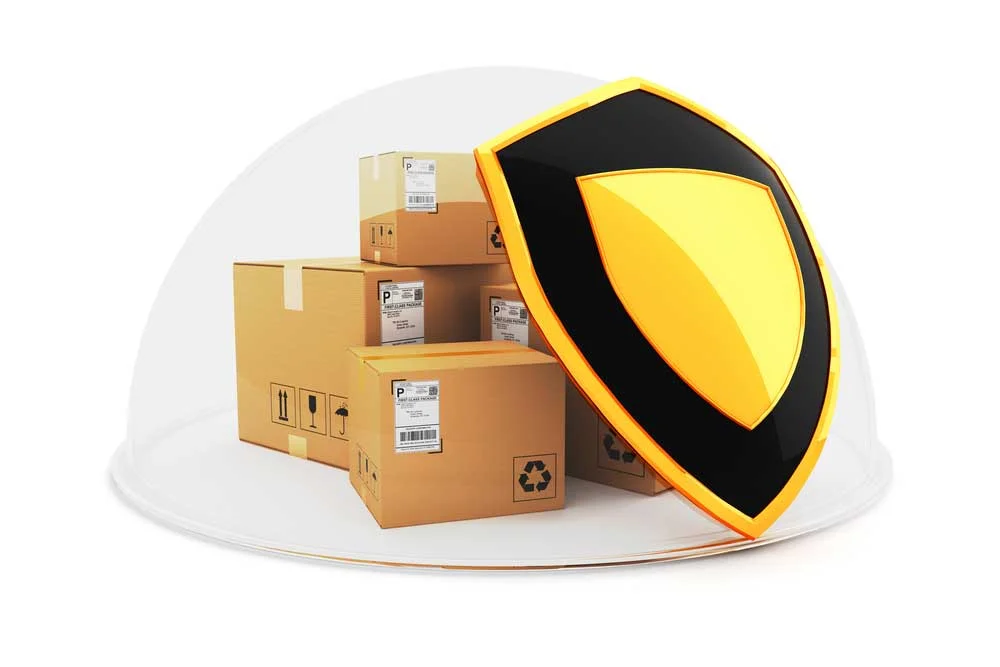 info@winteam.co.in
info@winteam.co.in +91 9960 1452 96
+91 9960 1452 96 +91 022 6741 1330 / 32 / 33
+91 022 6741 1330 / 32 / 33
 info@winteam.co.in
info@winteam.co.in +91 9960 1452 96
+91 9960 1452 96 +91 022 6741 1330 / 32 / 33
+91 022 6741 1330 / 32 / 33



Insurance is a value-added service arranged by WINETAM for the security of its customers valuable cargo. We have our insurance partner providing all kind of transport insurance including, LAND & MARINE Insurance.
When the freight or cargo is in transit, it is susceptible to damage due to unpredictable events on the road or sea. In case of an explosion due to road accidents or the sinking of container ships, the carrier's liability will not be enough to compensate for the loss of cargo owners. Cargo or freight insurance safeguards these owners from bearing heavy losses and indemnifies the claimant to the extent insured.

Cargo insurance is an exemplary risk management tool that protects against financial losses due to lost or damaged cargo. The cargo insurance coverage includes events mentioned in the policy like vehicle accidents, cargo renunciation, damage due to natural calamities, acts of war, piracy, etc. It covers up to the limit of an amount insured and is different from carrier liability.
Opting for preventive measures before the cargo is damaged is a prerequisite for businesses that ship frequently. Cargo or freight insurance offers advantageous solutions to decrease financial liability when there is any damage to a shipment.
Shipments in possession of a shipping line or airline are exposed to various types of risks. The uncontrollable external factors can bring great loss to a business. Moreover, in most cases, the carrier's liability is less than the total value of the goods, which makes cargo insurance quintessential.
Generally, cargo insurance is of two types – marine and land cargo insurance.
As the name suggests, land cargo insurance is for the cargo which uses the road as its mode of transportation and is usually shipped in trucks and other utility vehicles. This insurance offers coverage in incidence related to collision damages, theft, and other risks in freight shipping. This type of insurance is for the shipment of goods within the country's geographical boundaries.
Marine cargo insurance is used for international shipment through sea routes and covers the air portion when it is part of that same journey. This type of insurance offers coverage on any damages due to bad weather conditions, loading and unloading of goods, piracies, and other possible losses involved while the cargo is in possession of the Airline and Shipping line.
In addition, this freight insurance has several kinds of policies such as:
Single Coverage.
Contingency Policies.
Open Coverage.
Free from Particular Average.
All-Risk Coverage Policy.
General Average.
Cargo insurance coverage is based on the clauses outlined in the policy. The primary objective of the policy is to cover the damages caused due to the incidences specified in the clauses. Upon payment of the premium upfront, a policyholder can claim for damage or loss that occurred during transit.
The claim, once submitted, is reviewed to check the viability of that incident by a claim adjuster. If the damage is covered under the clauses of the policy, the claimant will receive a settlement check to the limit insured. While making a claim, a business must be sure of certain information like:
Description of items – details like dimensions, weight, implants, visual indicators, etc.
Inventory Number.
A proper description of the severity of damage.
Age of item and date of procurement or purchase of that specific goods.
Location of the packaging of goods.
Provide accurate original cost and price of similar items to determine their replacement cost.
Claim amount – Specify the cost of repairing goods in case of damage. On the other hand, specify the actual cost of a product in case of a complete loss.
Different types of unforeseen incidents can occur during transit via road, sea, or airline. To safeguard a business from bearing heavy physical losses due to loss or damage of shipments, here are the primary coverages that cargo insurance companies provide:
Cargo insurance companies mostly provide coverages for damage caused due to explosions or fires, stranding or sinking, etc.
Covers additional expenses raised due to overturning, collision, or other road inconveniences.
Insurance covers damages due to earthquakes, floods, tsunamis, or volcanic eruptions.
Package lost while loading or unloading and handling.
Any damage caused due to the entry of seawater into ships and vessels.
Besides the scenarios mentioned above, cargo insurance companies offer lucrative security to shipments in other cases that may vary across insurers.
Cargo and freight insurance firms do not cover the loss of shipments that shippers could have control of. The restrictions specified by the insurer in the policy prevent any fraudulent claim. Most of the policies exclude certain scenarios, like:
Damage of shipment due to inappropriate packaging.
Restrictions on the mode of transportation.
Damage due to shipment of the faulty product.
Does not cover specific shipments.
When obtaining cargo insurance for a shipment, it’s important to be familiar with the concept of cargo insurance endorsements. Endorsements, which are also called riders, add to, modify or delete coverage from the base policy to which they’re attached. For example, one item within a larger shipment might be much more expensive than the others. In that case, you might purchase a rider to provide additional protection for that item only.
Endorsements are a great way to customize an insurance policy to your specific needs.
When purchasing cargo insurance and choosing a policy or policies, it’s important to carefully consider the value of the assets you’re shipping. "I think they’re worth about $50,000," isn’t a good way to decide how much coverage to pay for. Choosing a more-or-less arbitrary number like that may mean that your items either don’t have adequate coverage or that you’re paying for more coverage than you need.
It’s also important to think about the risks they’ll face in transit and your goals for protecting them. And this is an exercise you should go through with every shipment.
Ultimately, cargo insurance tends to provide a significant amount of coverage—and peace of mind—for the money. It’s easy to think, "My shipping company is great. They take all the necessary precautions to protect my assets. So, I probably don’t need much insurance at all." Unfortunately, even the most skilled crews have no control over things like another vehicle colliding with the truck carrying your items.
Having adequate cargo insurance means you won’t be faced with explaining the cost of a damaged or destroyed asset to your boss and then trying to figure out how your company can cover the expense.
Marine insurance policies are available to everyone who has an insurable interest as per Section 5 of the Marine Insurance Act 1906 (MIA). A marine policy covers loss or damage to cargo or goods during transportation from the point of origin to the point of destination. There are several types of marine insurance policies, including those for road, rail, air, and sea transportation, as well as those for courier and postal services.
Fire, explosion, hijacks, accidents, collisions, and overturns are the most common causes of marine cargo loss during transit. In addition to covering theft, malicious damage, shortages, non-delivery of goods, damages during loading and unloading, and cargo mishandling, a marine insurance policy may offer specially curated plans. Coverage can be customized depending on business requirements, and it is available for a wide variety of cargo/goods, whether you trade or manufacture them.
Types of Marine Insurance in IndiaBefore purchasing marine insurance, you should be informed of the various types available so that you can select the one that suits your needs the most. Different types of marine insurance are as follows:
Marine Cargo Insurance.
Hull & Machinery Insurance.
Liability Insurance.
Freight Insurance.
Business items are the source of revenue for most businesses. Insuring them against any untoward incident while they are being transported helps secure the fortunes of your business. The importance of this policy cannot be overstated. Business shipments are typically high in value and any damage can impact the company directly. You are probably worried about plenty of things already if you are making a move for personal or professional reasons. Knowing that all your household items are safe means that you can breathe easy about this thing at least.
An overview of the 11 Incoterms 2020 rules that can be used in 2023.
Some of the most prevalent areas covered by marine insurance are:
Total Loss Protection.
Sinking, Stranding, Fire, And Explosion.
Earthquake or Lightning Strike.
Unpredictable Administrative Costs.
Cargo Loss During Loading Or Unloading.
Dumping Or Washing Overboard.
Natural Disasters.
Accident, Collision, Overturning, Derailment.
Average In General.
Specific Voyage Policy: This policy caters to goods transported through inland transport.
Time Policy: Generally, a time policy covers a fixed period, such as a year.
Mix Policy: Such a marine insurance policy extends insurance coverage for a specific voyage and for the chosen length of time. It allows clients the flexibility to handle numerous uncertainties associated with the movement of the ship and the cargo inside the ship.
Wager Policy: If the insurance company determines that the damage is worth the claim, reimbursements are provided; otherwise, there is no compensation offered. There are no fixed conditions for reimbursements in a wager policy. The wager policy is not a written insurance policy, so it is not valid in a court of law.
Duty Insurance: According to the Customs Act, cargo imported into India must be insured against Customs Duty. An insurance policy can include this duty in the value of the cargo insured, or it can be issued separately, with the Duty Insurance Clause incorporated into the policy.
Contingency Policy: If the policyholder is not required to insure under the Terms of Sale or where the cover provided is more restrictive than that offered under this policy, this policy extends to cover the contingent financial interest of the policyholder.
Port Risk Policy: Marine insurance policies like this one are taken out to ensure the ship's safety while in port.
Single Vessel Policy: Small shipowners can use this policy if they have one ship, or if they have one ship in several fleets. It covers the risk of one vessel for the insured.
Fleet Policy: Several ships owned by one owner are covered under this policy.
Block Policy: Cargo owners are protected by this policy against damage or loss of cargo through all modes of transportation in which their cargo is transported, including rail, road, and sea.
Floating Policy: The shipping line is issued a floating policy on a continuous basis. The only detail stated in the policy is the maximum sum insured. When the ship starts to sail, the insurance company is informed of all additional facts. This is the best approach for regular cargo owners who require frequent transportation of goods via shipping line, in order to save time and money.
Valued Policy: Valued marine insurance policies are the opposite of open marine insurance policies. The value of the cargo and consignment is determined in the policy document beforehand, so it is clear about the amount of reimbursement if there is a loss of cargo or consignment.
A marine insurance policy transfers the liability of the goods from the parties and associated intermediaries to the insurance provider. The legal liability of those handling the goods is limited from the outset. To protect the exported goods against loss or damage, the exporter can purchase an insurance policy that covers the goods against any possible loss or damage.
If there is damage or loss to the goods while on board, the carrier may be held responsible, though most compensation is on a 'per package' or 'per consignment basis. In this case, the insurance coverage may not be sufficient to cover the cost of the goods shipped. For this reason, exporters prefer to ship their products after they have been insured by an insurance company.
For more information on Mariner Insurance and how does it work, claim process, basis of valuation for claim, please click here:
Know about the abandoned goods and why are the cargo abandoned. What happens with abandoned goods and who is liable. How to avoid being stuck and what to do when stuck with abandoned good.
Every year, hundreds of thousands of containers loaded with cargo are abandoned at ports worldwide. The phenomenon of abandoned goods is not new. But it has become a bigger headache for the logistics industry in the current Covid-19 environment, contributing to port congestion and rising logistics costs.
For more details of Unclaimed/Abandoned cargo and its further process please click here: